- Home
- Elizabeth Gaskell
Gothic Tales Page 8
Gothic Tales Read online
Page 8
I was more frightened than ever; but I said I was not. I wished Miss Rosamond and myself well out of that dreadful house for ever; but I would not leave her, and I dared not take her away. But oh, how I watched her, and guarded her! We bolted the doors, and shut the window-shutters fast, an hour or more before dark, rather than leave them open five minutes too late. But my little lady still heard the weird child crying and mourning; and not all we could do or say, could keep her from wanting to go to her, and let her in from the cruel wind and the snow. All this time I kept away from Miss Furnivall and Mrs Stark, as much as ever I could; for I feared them – I knew no good could be about them, with their grey, hard faces, and their dreamy eyes, looking back into the ghastly years that were gone. But, even in my fear, I had a kind of pity for Miss Furnivall, at least. Those gone down to the pit can hardly have a more hopeless look than that which was ever on her face. At last I even got so sorry for her – who never said a word but what was quite forced from her – that I prayed for her; and I taught Miss Rosamond to pray for one who had done a deadly sin; but often when she came to those words, she would listen, and start up from her knees, and say, ‘I hear my little girl plaining and crying very sad – oh, let her in, or she will die!’
One night – just after New Year's Day had come at last, and the long winter had taken a turn, as I hoped – I heard the west drawing-room bell ring three times, which was the signal for me. I would not leave Miss Rosamond alone, for all she was asleep – for the old lord had been playing wilder than ever – and I feared lest my darling should waken to hear the spectre child; see her I knew she could not. I had fastened the windows too well for that. So I took her out of her bed, and wrapped her up in such outer clothes as were most handy, and carried her down to the drawing-room, where the old ladies sat at their tapestry work as usual. They looked up when I came in, and Mrs Stark asked, quite astounded, ‘Why did I bring Miss Rosamond there, out of her warm bed?’ I had begun to whisper, ‘Because I was afraid of her being tempted out while I was away, by the wild child in the snow,’ when she stopped me short (with a glance at Miss Furnivall), and said Miss Furnivall wanted me to undo some work she had done wrong, and which neither of them could see to unpick. So I laid my pretty dear on the sofa, and sat down on a stool by them, and hardened my heart against them, as I heard the wind rising and howling.
Miss Rosamond slept on sound, for all the wind blew so; and Miss Furnivall said never a word, nor looked round when the gusts shook the windows. All at once she started up to her full height, and put up one hand, as if to bid us listen.
‘I hear voices!’ said she. ‘I hear terrible screams – I hear my father's voice!’
Just at that moment my darling wakened with a sudden start: ‘My little girl is crying, oh, how she is crying!’ and she tried to get up and go to her, but she got her feet entangled in the blanket, and I caught her up; for my flesh had begun to creep at these noises, which they heard while we could catch no sound. In a minute or two the noises came, and gathered fast, and filled our ears; we, too, heard voices and screams, and no longer heard the winter's wind that raged abroad. Mrs Stark looked at me, and I at her, but we dared not speak. Suddenly Miss Furnivall went towards the door, out into the ante-room, through the west lobby, and opened the door into the great hall. Mrs Stark followed, and I durst not be left, though my heart almost stopped beating for fear. I wrapped my darling tight in my arms, and went out with them. In the hall the screams were louder than ever; they seemed to come from the east wing – nearer and nearer – close on the other side of the locked-up doors – close behind them. Then I noticed that the great bronze chandelier seemed all alight, though the hall was dim, and that a fire was blazing in the vast hearth-place, though it gave no heat; and I shuddered up with terror, and folded my darling closer to me. But as I did so, the east door shook, and she, suddenly struggling to get free from me, cried, ‘Hester! I must go! My little girl is there! I hear her; she is coming! Hester, I must go!’
I held her tight with all my strength; with a set will, I held her. If I had died, my hands would have grasped her still, I was so resolved in my mind. Miss Furnivall stood listening, and paid no regard to my darling, who had got down to the ground, and whom I, upon my knees now, was holding with both my arms clasped round her neck; she still striving and crying to get free.
All at once, the east door gave way with a thundering crash, as if torn open in a violent passion, and there came into that broad and mysterious light, the figure of a tall old man, with grey hair and gleaming eyes. He drove before him, with many a relentless gesture of abhorrence, a stern and beautiful woman, with a little child clinging to her dress.10
‘Oh, Hester! Hester!’ cried Miss Rosamond; ‘it's the lady! the lady below the holly-trees; and my little girl is with her. Hester! Hester! let me go to her; they are drawing me to them. I feel them – I feel them. I must go!’
Again she was almost convulsed by her efforts to get away; but I held her tighter and tighter, till I feared I should do her a hurt; but rather that than let her go towards those terrible phantoms. They passed along towards the great hall-door, where the winds howled and ravened for their prey; but before they reached that, the lady turned; and I could see that she defied the old man with a fierce and proud defiance; but then she quailed – and then she threw up her arms wildly and piteously to save her child – her little child – from a blow from his uplifted crutch.
And Miss Rosamond was torn as by a power stronger than mine, and writhed in my arms, and sobbed (for by this time the poor darling was growing faint).
‘They want me to go with them on to the Fells – they are drawing me to them. Oh, my little girl! I would come, but cruel, wicked Hester holds me very tight.’ But when she saw the uplifted crutch, she swooned away, and I thanked God for it. Just at this moment – when the tall old man, his hair streaming as in the blast of a furnace, was going to strike the little shrinking child – Miss Furnivall, the old woman by my side, cried out, ‘Oh, father! father! spare the little innocent child!’ But just then I saw – we all saw – another phantom shape itself, and grow clear out of the blue and misty light that filled the hall; we had not seen her till now, for it was another lady who stood by the old man, with a look of relentless hate and triumphant scorn. That figure was very beautiful to look upon, with a soft, white hat drawn down over the proud brows, and a red and curling lip. It was dressed in an open robe of blue satin. I had seen that figure before. It was the likeness of Miss Furnivall in her youth; and the terrible phantoms moved on, regardless of old Miss Furnivall's wild entreaty, – and the uplifted crutch fell on the right shoulder of the little child, and the younger sister looked on, stony, and deadly serene. But at that moment, the dim lights, and the fire that gave no heat, went out of themselves, and Miss Furnivall lay at our feet stricken down by the palsy – death-stricken.
Yes! she was carried to her bed that night never to rise again. She lay with her face to the wall, muttering low, but muttering always: ‘Alas! alas! what is done in youth can never be undone in age! What is done in youth can never be undone in age!’
The Squire’s Story
In the year 1769, the little town of Barford1 was thrown into a state of great excitement by the intelligence that a gentleman (and ‘quite the gentleman,’ said the landlord of the George Inn) had been looking at Mr Clavering’s old house. This house was neither in the town nor in the country. It stood on the outskirts of Barford, on the road-side leading to Derby. The last occupant had been a Mr Clavering – a Northumberland gentleman of good family – who had come to live in Barford while he was but a younger son;2 but when some elder branches of the family died, he had returned to take possession of the family estate. The house of which I speak was called the White House, from its being covered with a greyish kind of stucco. It had a good garden to the back, and Mr Clavering had built capital stables, with what were then considered the latest improvements. The point of good stabling was expected to let the house, as it was
in a hunting county; otherwise it had few recommendations. There were many bedrooms; some entered through others, even to the number of five, leading one beyond the other; several sitting-rooms of the small and poky kind, wainscotted round with wood, and then painted a heavy slate colour; one good dining-room, and a drawing-room over it, both looking into the garden, with pleasant bow-windows.
Such was the accommodation offered by the White House. It did not seem to be very tempting to strangers, though the good people of Barford rather piqued themselves on it as the largest house in the town, and as a house in which ‘townspeople’ and ‘county people’ had often met at Mr Clavering’s friendly dinners. To appreciate this circumstance of pleasant recollection, you should have lived some years in a id="page_34" little country town, surrounded by gentlemen’s seats.3 You would then understand how a bow or a courtesy from a member of a county family elevates the individuals who receive it almost as much, in their own eyes, as the pair of blue garters fringed with silver, did Mr Bickerstaff’s ward.4 They trip lightly on air for a whole day afterwards. Now Mr Clavering was gone, where could town and county mingle?
I mention these things that you may have an idea of the desirability of the letting of the White House in the Barfordites’ imagination; and to make the mixture thick and slab,5 you must add for yourselves the bustle, the mystery and the importance which every little event either causes or assumes in a small town; and then, perhaps, it will be no wonder to you that twenty ragged little urchins accompanied the ‘gentleman’ aforesaid to the door of the White House; and that, although he was above an hour inspecting it, under the auspices of Mr Jones, the agent’s clerk, thirty more had joined themselves on to the wondering crowd before his exit, and awaited such crumbs of intelligence as they could gather before they were threatened or whipped out of hearing distance. Presently, out came the ‘gentleman’ and the lawyer’s clerk. The latter was speaking as he followed the former over the threshold. The gentleman was tall, well-dressed, handsome; but there was a sinister cold look in his quick-glancing, light blue eye, which a keen observer might not have liked. There were no keen observers among the boys, and ill-conditioned gaping girls. But they stood too near; inconveniently close; and the gentleman, lifting up his right hand, in which he carried a short riding-whip, dealt one or two sharp blows to the nearest, with a look of savage enjoyment on his face as they moved away whimpering and crying. An instant after, his expression of countenance had changed.
‘Here!’ said he, drawing out a handful of money, partly silver, partly copper, and throwing it into the midst of them. ‘Scramble for it! fight it out, my lads! come this afternoon, at three, to the George, and I’ll throw you out some more.’ So the boys hurrahed for him as he walked off with the agent’s clerk. He chuckled to himself, as over a pleasant thought. ‘I’ll have some fun with those lads,’ he said; ‘I’ll teach ’em to come prowling and prying about me. I’ll tell you what I’ll do. I’ll make the money so hot in the fire-shovel that it shall burn their fingers. You come and see the faces and the howling. I shall be very glad if you will dine with me at two; and by that time I may have made up my mind respecting the house.’
Mr Jones, the agent’s clerk, agreed to come to the George at two, but, somehow, he had a distaste for his entertainer. Mr Jones would not like to have said, even to himself, that a man with a purse full of money, who kept many horses, and spoke familiarly of noblemen – above all, who thought of taking the White House – could be anything but a gentleman; but still the uneasy wonder as to who this Mr Robinson Higgins could be, filled the clerk’s mind long after Mr Higgins, Mr Higgins’s servants and Mr Higgins’s stud had taken possession of the White House.
The White House was re-stuccoed (this time of a pale yellow colour), and put into thorough repair by the accommodating and delighted landlord, while his tenant seemed inclined to spend any amount of money on internal decorations, which were showy and effective in their character, enough to make the White House a nine days’ wonder to the good people of Barford. The slate-coloured paints became pink, and were picked out with gold; the old-fashioned banisters were replaced by newly gilt ones; but, above all, the stables were a sight to be seen. Since the days of the Roman Emperor, never was there such provision made for the care, the comfort and the health of horses.6 But every one said it was no wonder, when they were led through Barford, covered up to their eyes, but curving their arched and delicate necks, and prancing with short, high steps, in repressed eagerness. Only one groom came with them; yet they required the care of three men. Mr Higgins, however, preferred engaging two lads out of Barford; and Barford highly approved of his preference. Not only was it kind and thoughtful to give employment to the lounging lads themselves, but they were receiving such a training in Mr Higgins’s stables as might fit them for Doncaster or Newmarket.7 The district of Derbyshire in which Barford was situated was too close to Leicestershire not to support a hunt and a pack of hounds. The master of the hounds was a certain Sir Harry Manley, who was aut a huntsman aut nullus.8 He measured a man by the ‘length of his fork’, not by the expression of his countenance, or the shape of his head. But, as Sir Harry was wont to observe, there was such a thing as too long a fork, so his approbation was withheld until he had seen a man on horseback; and if his seat there was square and easy, his hand light, and his courage good, Sir Harry hailed him as a brother.
Mr Higgins attended the first meet of the season, not as a subscriber but as an amateur. The Barford huntsmen piqued themselves on their bold riding; and their knowledge of the country came by nature; yet this new strange man, whom nobody knew, was in at the death, sitting on his horse, both well breathed and calm, without a hair turned on the sleek skin of the latter, supremely addressing the old huntsman as he hacked off the tail of the fox;9 and he, the old man, who was testy even under Sir Harry’s slightest rebuke, and flew out on any other member of the hunt that dared to utter a word against his sixty years’ experience as stable-boy, groom, poacher and what not – he, old Isaac Wormeley, was meekly listening to the wisdom of this stranger, only now and then giving one of his quick, up-turning, cunning glances, not unlike the sharp, o’er-canny looks of the poor deceased Reynard, round whom the hounds were howling, unadmonished by the short whip which was now tucked into Wormeley’s well-worn pocket. When Sir Harry rode into the copse – full of dead brushwood and wet tangled grass – and was followed by the members of the hunt, as one by one they cantered past, Mr Higgins took off his cap and bowed – half deferentially, half insolently – with a lurking smile in the corner of his eye at the discomfited looks of one or two of the laggards. ‘A famous run, sir,’ said Sir Harry. ‘The first time you have hunted in our country, but I hope we shall see you often.’
‘I hope to become a member of the hunt, sir,’ said Mr Higgins.
‘Most happy – proud, I am sure, to receive so daring a rider among us. You took the Cropper-gate, I fancy, while some of our friends here’ – scowling at one or two cowards by way of finishing his speech. ‘Allow me to introduce myself – master of the hounds.’ He fumbled in his waistcoat pocket for the card on which his name was formally inscribed. ‘Some of our friends here are kind enough to come home with me to dinner; might I ask for the honour?’
‘My name is Higgins,’ replied the stranger, bowing low. ‘I am only lately come to occupy the White House at Barford, and I have not as yet presented my letters of introduction.’
‘Hang it!’ replied Sir Harry; ‘a man with a seat like yours, and that good brush in your hand, might ride up to any door in the county (I’m a Leicestershire man!), and be a welcome guest. Mr Higgins, I shall be proud to become better acquainted with you over my dinner-table.’
Mr Higgins knew pretty well how to improve the acquaintance thus begun. He could sing a good song, tell a good story and was well up in practical jokes; with plenty of that keen, worldly sense, which seems like an instinct in some men, and which in this case taught him on whom he might play off such jokes, with impunity fro
m their resentment, and with a security of applause from the more boisterous, vehement or prosperous. At the end of twelve months Mr Robinson Higgins was, out-and-out, the most popular member of the Barford hunt; had beaten all the others by a couple of lengths, as his first patron, Sir Harry, observed one evening, when they were just leaving the dinner-table of an old hunting squire in the neighbourhood.
‘Because you know,’ said Squire Hearn, holding Sir Harry by the button – ‘I mean, you see, this young spark is looking sweet upon Catherine; and she’s a good girl, and will have ten thousand pounds down, the day she’s married, by her mother’s will; and, excuse me, Sir Harry, but I should not like my girl to throw herself away.’
Though Sir Harry had a long ride before him, and but the early and short light of a new moon to take it in, his kind heart was so much touched by Squire Hearn’s trembling, tearful anxiety, that he stopped and turned back into the dining-room to say, with more asseverations than I care to give, –
‘My good squire, I may say, I know that man pretty well by this time; and a better fellow never existed. If I had twenty daughters he should have the pick of them.’
Squire Hearn never thought of asking the grounds for his old friend’s opinion of Mr Higgins; it had been given with too much earnestness for any doubts to cross the old man’s mind as to the possibility of its not being well founded. Mr Hearn was not a doubter, or a thinker, id="page_38" or suspicious by nature; it was simply his love for Catherine, his only child,10 that prompted his anxiety in this case; and, after what Sir Harry had said, the old man could totter with an easy mind, though not with very steady legs, into the drawing-room, where his bonny, blushing daughter Catherine and Mr Higgins stood close together on the hearth-rug; he whispering, she listening with downcast eyes. She looked so happy, so like her dead mother had looked when the squire was a young man, that all his thought was how to please her most. His son and heir was about to be married, and bring his wife to live with the squire; Barford and the White House were not distant an hour’s ride; and, even as these thoughts passed through his mind, he asked Mr Higgins if he could not stay all night – the young moon was already set – the roads would be dark – and Catherine looked up with a pretty anxiety, which, however, had not much doubt in it, for the answer.

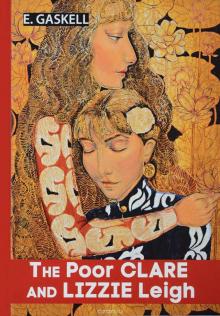 Lizzie Leigh
Lizzie Leigh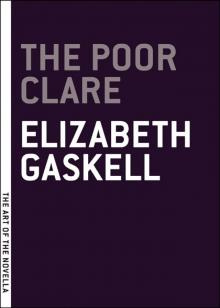 The Poor Clare
The Poor Clare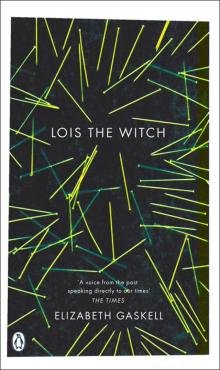 Lois the Witch
Lois the Witch North and South
North and South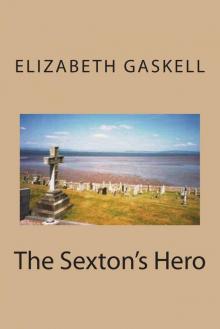 Sexton's Hero
Sexton's Hero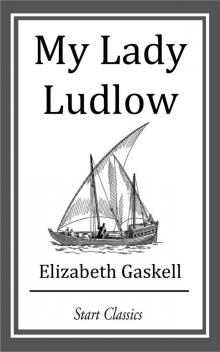 My Lady Ludlow
My Lady Ludlow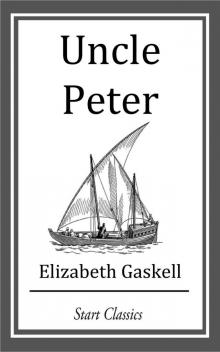 Uncle Peter
Uncle Peter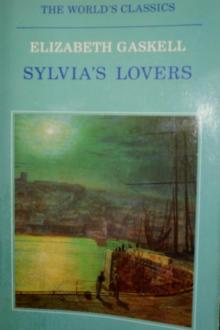 Sylvia's Lovers Elizabeth Cleghorn Gaskell
Sylvia's Lovers Elizabeth Cleghorn Gaskell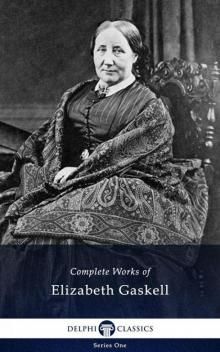 Delphi Complete Works of Elizabeth Gaskell
Delphi Complete Works of Elizabeth Gaskell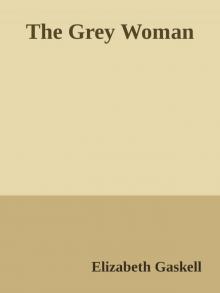 The Grey Woman
The Grey Woman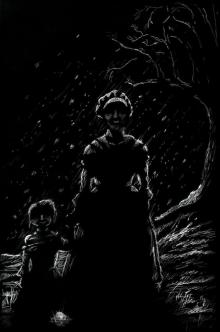 The Old Nurse's Story and Other Tales
The Old Nurse's Story and Other Tales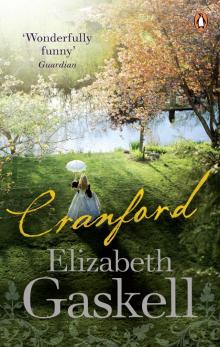 Cranford
Cranford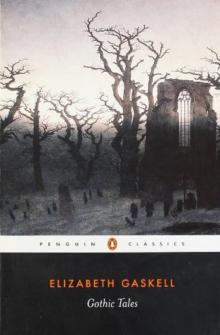 Gothic Tales
Gothic Tales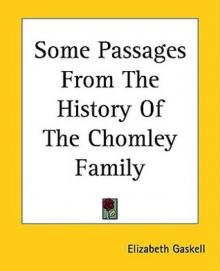 Some Passages From the History of the Chomley Family
Some Passages From the History of the Chomley Family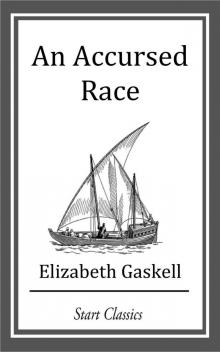 An Accursed Race
An Accursed Race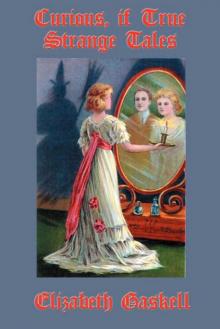 Curious, if True: Strange Tales Elizabeth Cleghorn Gaskell
Curious, if True: Strange Tales Elizabeth Cleghorn Gaskell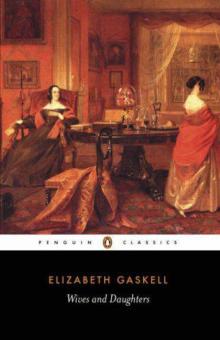 Wives and Daughters
Wives and Daughters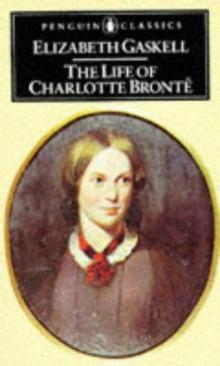 The life of Charlotte Brontë
The life of Charlotte Brontë